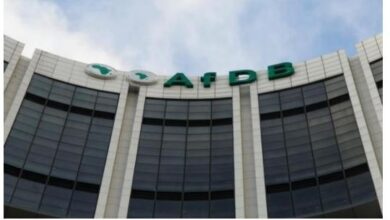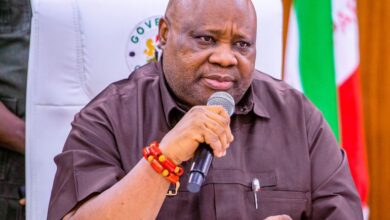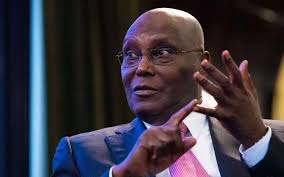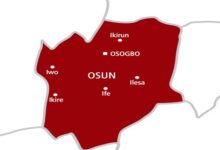Activists task FG on curbing violence, ensuring national security ahead of 2023 general elections
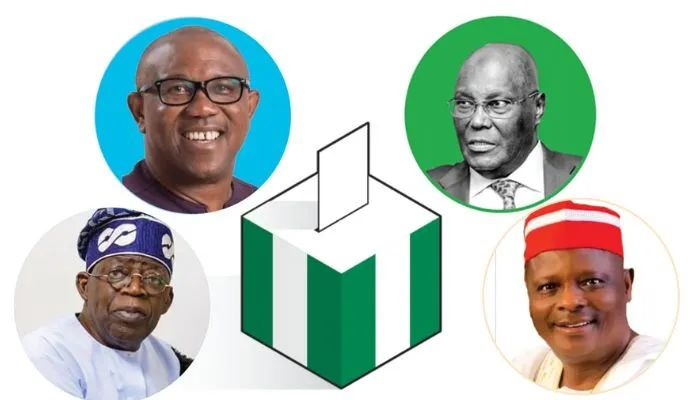
Activists in the public policy space drawn from the Corporate Accountability and Public Participation Africa (CAPPA), Education Rights Campaign (ERC), and Centre for Anti-corruption and Open Leadership (CACOL) have urged the Federal Government to ensure that adequate measures are put in place to flush out violent groups and secure towns and villages affected by insecurity in the country before the February 25, 2023, general elections.
They stressed the need for the government and the relevant security agencies to deploy adequate security for the smooth conduct of the general elections, while also ensuring that the measures do not interfere with ongoing efforts to contain activities of violent groups across the country.
They also decried the Central Bank of Nigeria (CBN) for the shoddy way in which it handled the Naira redesign and old notes swap project, which have made life unbearable for Nigerians adding: “It is unthinkable and scandalous that in our lifetime, a black market has been created in which Nigerians now buy the Naira with the Naira. The major cause of the cash scarcity is that the apex bank did not print enough of the new notes, which is why they are hardly available.
“There is no basis for the sufferings imposed on Nigerians in recent times due to cash and fuel scarcity. In other climes, these things are made to work seamlessly. For instance, India successfully did a currency swap within four hours such that people started having access to the new notes in a matter of 24 hours, while the old notes are used side by side with the new ones in the United Kingdom (UK) and other developed countries, but in Nigeria, the reverse is always the case in every situation.”
Specifically, Executive Director of CAPPA, Akinbode Oluwafemi, who addressed journalists at the media presentation of its report titled: 2023 General Elections: Challenges And Threats To Consolidating Democracy in Lagos, further enjoined the Federal Government to synergize with the CBN and other relevant stakeholders to resolve the lingering crises of cash and fuel scarcity, which he said, was capable of negatively impacting the logistics capacities of the Independent National Electoral Commission (INEC) and other crucial stakeholders such as election monitors.
In his address tagged: Threats Remain, But A Free And Fair Election Is Possible, he said: “INEC should work with community watch officials and security agencies to deploy technology including drones to electronically monitor and track in real time the movement of all vehicles and boats used in conveying electoral personnel and materials to prevent their hijacking and diversion.
It should put in place mechanisms for swift countermeasures to prevent bypassing and hacking of the Bimodal Voter Accreditation System (BVAS) and INEC Result Viewing Portal (IREV) platforms. Where necessary, it should leverage international support for this purpose,” Akinbode stated.
He noted that the commission should liaise with relevant government, intergovernmental, and non-governmental agencies to agree on effective measures to ensure the participation of Internally Displaced Persons (IDPs) in the elections, adding: “This can be done by developing a register which accurately maps the number, identity, status and location of displaced persons.”
The report also made a strong case for security agencies and operatives to promptly arrest electoral offenders and prosecute them to serve as a deterrent to other intending lawbreakers and partner with local communities and vigilantes to safeguard environments and report unusual activities before, during, and after the elections.
“The Inter-Agency Consultative Committee on Election Security (ICCES) should work with security agencies to identify persons of interest based on credible intelligence and ensure they are subjected to lawful surveillance during the electioneering period provided a court order authorizing such is secured.
“Violence often starts with allegations of bias, hence the INEC, the police, and other security agencies must maintain utmost impartiality in the course of discharging their duties,” it further added.
Insisting that there are threats to the upcoming 2023 general election, Akinbode further charged the media, civil society, and technology companies to work together to monitor and dispel election-related fake news.
He stressed that the stakeholders should intensify sensitization and awareness programs aimed at empowering voters with information on peace-building during elections and the latest developments with regard to the electioneering processes in Nigeria to help them make informed decisions.
On their part, Zikorah Ibeh of the Policy and Research unit of CAPPA, National Coordinator of ERC, Hassan Taiwo Soweto, and CACOL Director of Administration and Programmes, Tola Oresanwo, stressed the importance of the 2023 general elections to the socio-political and economic well being of the country, maintaining that Nigerians deserve nothing less than a smooth, free, fair and credible election as the only means of consolidating the nation’s democracy.
They pointed out the need for Nigerians in the Diaspora to exercise their franchise in the 2023 general elections and in future polls, as there were well over 16 million eligible Nigerian voters in the Diaspora, who should be allowed to cast their ballots electronically.
Besides arguing that the Political elites were bent on scuttling the consolidation of Nigeria’s democracy, they also expressed concerns over the violence in the South East region, insisting that the authorities must ensure that peace reigns in the region before, during, and after the polls to stem the tide of disputations and litigations capable of jeopardizing the conduct of the general elections.
Explaining the motive for the report, Akinbode explained that it was informed by recent developments in the political space and the sense of apathy and hope that continues to grow, as the 2023 general elections approach.
It is crucial for all stakeholders to take note of the emerging developments, particularly the challenges facing our democracy and the opportunities that exist to work together for a fair and credible election.
“The report examines Nigeria’s tumultuous democratic history, from independence in 1960 marked by military coups to the restoration of civilian rule in 1999 with highlights of the persistent challenges of electoral malpractices faced during previous elections, as well as the improvements in the country’s electoral process.
“Several years of misgovernance have resulted in despair, unrest, and uprisings across the country, particularly in the North East where the Boko Haram insurgency began and in the South East where separatist tensions continue to escalate for which most Nigerians feel the existing challenges might impede a credible general election,” he said.
He said the report, therefore, interrogates the various concerns, including logistics and administrative difficulties faced by INEC and attacks on its facilities across the country, the lingering cash and fuel scarcity, rising security challenges, spread of misinformation and fake news, the manifestations of voter suppression and the likelihood of social unrest.
“Besides the challenges being posed to free and fair elections, the report zeroed in on the steps taken by President Muhammadu Buhari’s administration to guarantee credible elections with a specific focus on the Electoral Act of 2022. It recognizes INEC’s efforts to improve elections through the adoption of the BVAS and IREV, as well as the largely successful voter registration managed by the commission, which captured 9.5 million new voters, among others.
“Despite the concerns over observed challenges, the report notes expressed hope that credible elections can be achieved, if stakeholders work together in ensuring that all identified threats are nipped in the bud, just as it targets critical stakeholders and their roles in guaranteeing free, fair and credible polls,” he stated.
Joshua Okoria is a Lagos-based multi-skilled journalist covering the maritime industry. His ICT and graphic design skills make him a resourceful person in any modern newsroom. He read mass communication at the Olabisi Onabanjo University and has sharpened his knowledge in media practice from several other short courses

